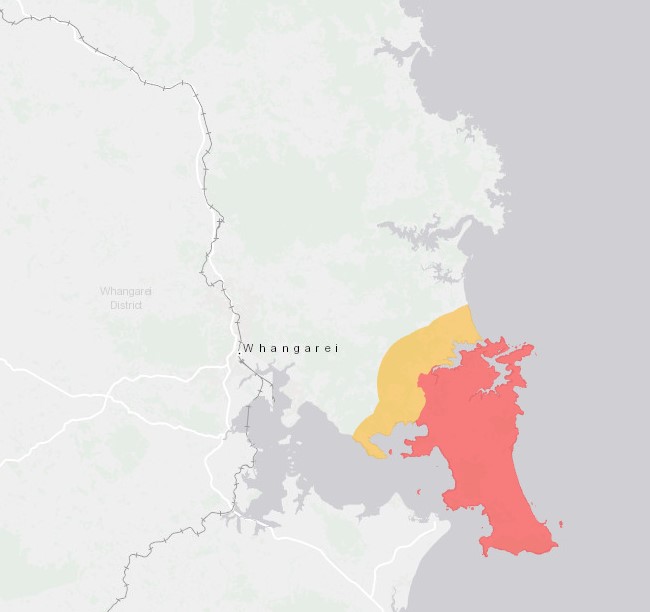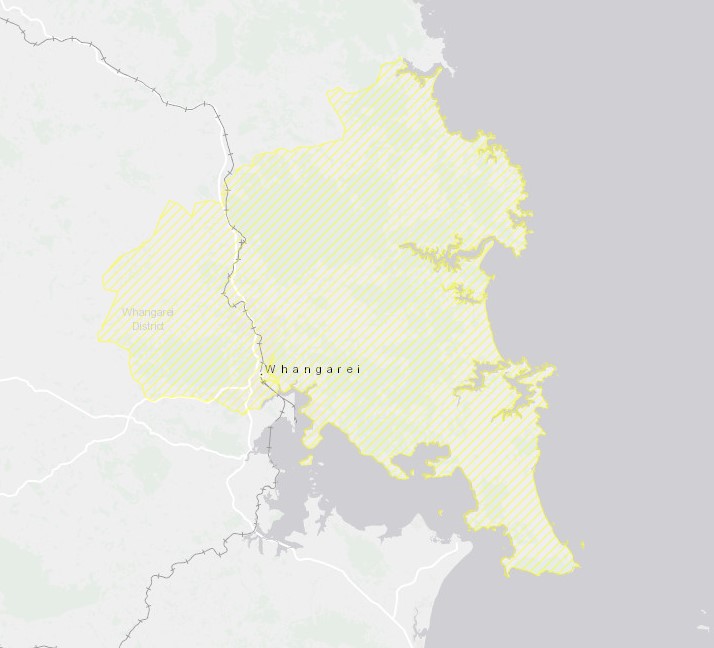Predator Free Whangārei has three strategic areas which covers 60,000 ha of our district

Possum-Free Whangārei Heads
Peninsulas are strategic starting points for any mainland eradication programme. Thanks to decades of dedicated mahi from local conservation groups and numerous volunteers, the predator population has been suppressed and kiwi numbers have increased.
By 2025, we aim to eradicate possums from the Whangārei Heads peninsula – an area covering over 9,000ha (coloured red), which will be one of the first possum-free zones on mainland New Zealand. This diverse landscape includes almost 2,000 landowners, multiple landcare groups, schools, and public conservation land. We will work collaboratively with everyone to achieve this goal.
We also aim to keep possum numbers to extremely low levels in the exclusion zone (coloured orange) to reduce the likelihood of incursion.

Whangārei Urban Pest Control
Tiakina Whangārei is a community partnership programme focused on encouraging native wildlife back into urban Whangārei (coloured blue) through predator control activities. Tiakina Whangārei encourages and equips city-dwellers to get involved in backyard trapping and creates learning opportunities for people to better understand the impact of predators on our native flora and fauna. By reducing predator numbers around our waterways and urban forests, such as the maunga Parihaka, we will all benefit from a flourishing urban native environment.
Learn more about Tiakina Whangārei here

Suppress Predators Across Whangārei District
Our communities have been working hard for many years to reduce predator numbers across the Whangārei District (coloured yellow). The aim of Predator Free Whangārei is to accelerate and sustain this incredible work to protect and restore our native forests and wildlife, expanding upon existing mustelid control to bolster resilience.
This work will prepare us for the next stages of extending the predator-free area in the future. In special areas, we’ll support community efforts to intensively control rats and possums.